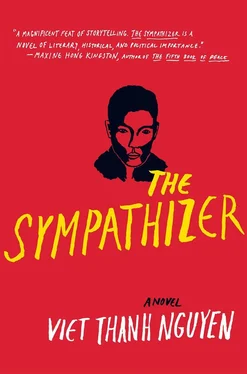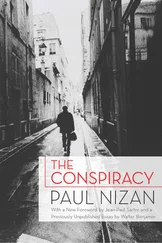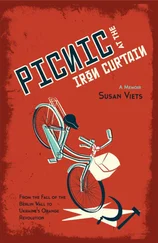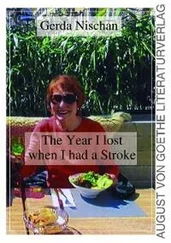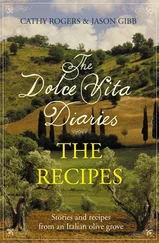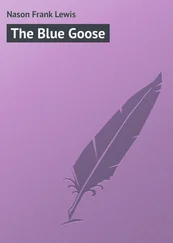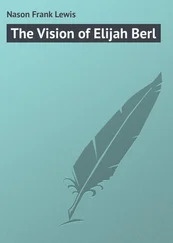I not only got it, I was astonished. It was the longest speech I had ever heard from him, his sorrow and rage and despair not only cracking open his heart but loosening his vocal cords. Those words even succeeded in making him less ugly than he objectively was, if not handsome, emotion softening the harsh features of his face. He was the only man I had ever met who seemed moved, deeply, not only by love but also by the prospect of killing. While he was an expert by necessity, I was a novice by choice, despite having had my opportunities. In our country, killing a man — or a woman, or a child — was as easy as turning a page of the morning paper. One only needed an excuse and an instrument, and too many on all sides possessed both. What I did not have was the desire or the various uniforms of justification a man dons as camouflage — the need to defend God, country, honor, ideology, or comrades — even if, in the last instance, all he really is protecting is that most tender part of himself, the hidden, wrinkled purse carried by every man. These off-the-rack excuses fit some people well, but not me.
I wanted to persuade the General that the crapulent major was no spy, but it would hardly do to disinfect him of the idea with which I had infected him in the first place. More than this, I knew I had to prove to the General that I could correct my ostensible mistake, and that I could be a man of action. Not doing something was not an option, as the General’s demeanor made clear to me at our next meeting the following week. He deserves it, the General said, disagreeably obsessed with the indelible stain of guilt he saw stamped on the major’s forehead, that tiny handprint of the major’s doomed mortality left there by me. But take your time. I’m in no rush. Operations should be performed patiently and painstakingly. He affirmed this in a storeroom that channeled the dispassionate atmosphere of a war room, the walls newly decorated with maps showing our sinuous, narrow-waisted homeland in all its splendor or its parts, each suffocating behind plastic sheeting, red markers dangling on strings next to them. Better to do it well and slowly than quickly and poorly, he said. Yes, sir, I said. What I had in mind was—
No need to bore me with details. Just let me know when it’s done.
So the major’s demise was written. Nothing was left me but to create a believable story where his death was neither my fault nor the General’s. I did not have to think very hard before the most obvious story came to me. What we had here was your usual American tragedy, only this time starring a hapless refugee.
Professor Hammer invited me to dinner the next Saturday night at his house, the occasion being Claude’s imminent return to Washington. The only other guest was the professor’s boyfriend, Stan, a doctoral student my own age at UCLA, writing his dissertation on the American literary expatriates of Paris. He had the white teeth and blond hair of a model in a toothpaste ad, where his role would be the young father of toothsome cherubs. The professor’s homosexuality had been mentioned to me by Claude before I matriculated at the college in ’63, because, Claude said, I just didn’t want you to be surprised. Never having known a homosexual, I had been curious to see how one behaved in his natural environment, which is to say the West, as the East apparently had no homosexuals. Much to my disappointment, Professor Hammer seemed no different from anyone else, aside from his acute intelligence and impeccable taste in all things, extending to Stan and the culinary arts.
The three-course meal was prepared by the professor himself, a salad of mixed greens, duck confit with rosemary potatoes, and a flaky tarte Tatin, preceded by martinis, accompanied by pinot noir, and finished off with single malt scotch. All was served in the meticulously restored dining room of the professor’s Craftsman bungalow in Pasadena, everything from the double-hung windows, to the art deco chandelier, to the brass hardware of the built-in cabinetry either an original from the early twentieth century or a faithful reproduction. Every now and then the professor rose from the dining table and replaced the record on the turntable, choosing a new selection from his extensive jazz collection. Over dinner, we talked about bebop, the nineteenth-century novel, the Dodgers, and America’s upcoming bicentennial. Then we repaired with our scotch to the living room with its massive fireplace of river rock and its stately Mission furniture of angular wooden frames and leather cushions. Books of all heights, widths, and colors lined the walls in a democratic parade of individualism, arranged as haphazardly as they were on the walls of the professor’s campus office. Ensconced thus by letters, words, sentences, paragraphs, pages, chapters, and tomes, the evening was a pleasant one, memorable for the exchange that took place after we assumed our seats. His nostalgia stimulated, perhaps, by the literature around him, the professor said, I still remember your thesis on The Quiet American . That was one of the best undergraduate theses I’ve ever read. I smiled demurely and said thanks while Claude, sitting beside me on the sofa, snorted. I didn’t care too much for that book. The Vietnamese girl, all she does is prepare opium, read picture books, and twitter like a bird. Have you ever met a Vietnamese girl like her? If so, please introduce me. All the ones I meet can’t keep their mouths shut in or out of bed.
Oh, Claude, the professor said.
Oh, Claude, nothing. No offense, Avery, but our American friend in that book also happens to look suspiciously like a latent homosexual.
It takes one to smell one, Stan said.
Who wrote that one for you? Noël Coward? His name is Pyle, for God’s sake. How many jokes can you make with that name? It’s also a pro-communist book. Or at least anti-American. Same thing, anyway. Claude waved his hand at the books, the furniture, the living room, presumably the whole well-appointed home. Hard to believe he was once a communist, isn’t it?
Stan? I said.
No, not Stan. Were you, Stan? I thought not.
That left the professor, who shrugged his shoulders when I looked at him. I was your age, he said, putting his arm around Stan’s shoulders. I was impressionable, I was passionate, I wanted to change the world. Communism seduced me like so many others.
Now he’s the one doing the seducing, Stan said, squeezing the professor’s hand, a sight that made me squirm just a little. For me, the professor was a walking mind, and to see him as a body, or having a body, was still discomfiting.
Do you ever regret being a communist, Professor?
No, I do not. Only by making that mistake could I be what I am today.
What is that, sir?
He smiled. I suppose you could call me a born-again American. An irony, but if the bloody history of the past few decades has taught me anything, it’s that the defense of freedom demands the muscularity only America can provide. Even what we do at the college has its purpose. We teach you the best of what was thought and said not only to explain America to the world, as I have always encouraged you to do, but to defend it.
I sipped my scotch. It was smoky and smooth, tasting of peat and aged oak, underscored by licorice and the intangible essence of Scottish masculinity. I liked my scotch undiluted, like I liked my truth. Unfortunately, undiluted truth was as affordable as eighteen-year-old single malt scotch. What about those who have not learned the best of what was thought and said? I asked the professor. If we can’t teach them, or if they won’t be taught?
The professor contemplated the copper depths of his drink. I suppose you and Claude have seen more than your fair share of those types in your line of work. There’s no easy answer, except to say it has always been thus. Ever since the first caveman discovered fire and decided that the ones still living in darkness were benighted, it’s been civilization against barbarism. . with every age having its own barbarians.
Читать дальше
